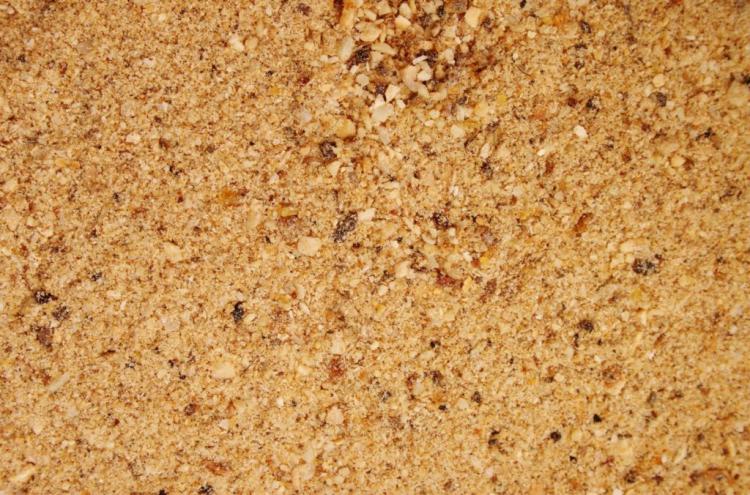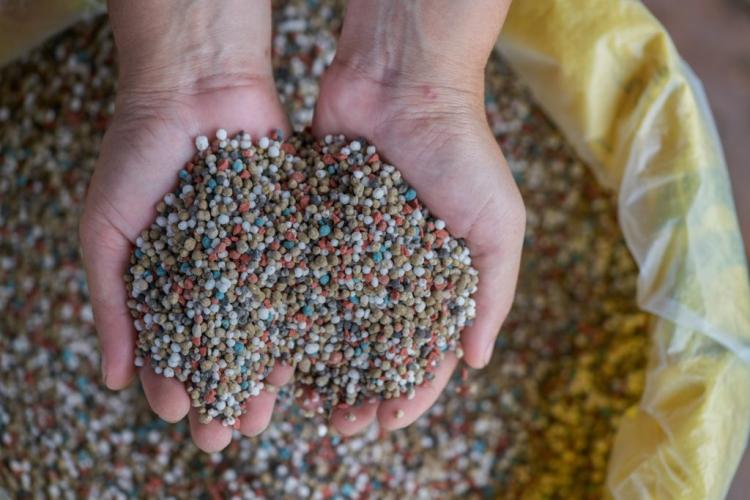Organic-Mineral Fertilizer: Properties And Effects
Again and again, you come across mixed organic-mineral fertilizers. We explain what this is all about, how they work, and name their advantages and disadvantages.
The mineral and organic fertilizers seem to be opposites. But doesn’t it always say that opposites attract each other? Mineral and organic fertilizers also go better together than you might think. The mixture combines the positive properties of both fertilizers. As the saying goes: it’s all in the mix.
The topics of nutrient leaching and over-fertilized waters are very topical. But agriculture is not the only thing that contributes to this, because gardens, in particular, are often fertilized too much. Unfortunately, a lot doesn’t necessarily help a lot, it can quickly lead to a surplus – and that ends up in the environment. Organic-mineral fertilizers, which reduce leaching and optimally supply the plants with nutrients, are a wonderful alternative.
What is organic mineral fertilizer?
Table of Contents
Typically, fertilizers can be divided into two categories: Mineral fertilizers are either produced industrially or are mined elsewhere. The nutrients are already dissolved and directly available to the plants. It looks different with organic fertilizer. This is of vegetable or animal origin. With this type of fertilizer, the nutrients are bound, for example in compost, horse manure, or dead plant parts. Before they can be used by the plant, they must first be processed by soil organisms.

Organic components of organic-mineral fertilizers are often residues from agriculture such as bone meal
Effect and nutritional content of organic-mineral fertilizers
The nutrient content of organic-mineral fertilizers is lower than that of purely mineral fertilizers since the organic components contain far fewer nutrients than mineral fertilizers. The lower concentration of nutrients helps prevent nutrients from being washed out as quickly. Nevertheless, the nutrients are more concentrated than with purely organic fertilizers.
The really interesting thing, however, is not the nutrient concentration, but the nutrient availability. The mineral component of the fertilizer is quickly and directly available to the plant, but it is also quickly used up by the plant. The organic component, on the other hand, ensures that the effect of the fertilizer lasts for a long time. However, there are also long-term mineral fertilizers. Nitrification-inhibiting substances are added to these fertilizers, which prevent bacteria from making the nitrogen available to the plants too quickly.
Advantages and disadvantages of organic-mineral fertilizer
Organic-mineral fertilizers know how to combine the positive properties of organic and mineral fertilizers.
Advantages of organic-mineral fertilizer:
- Rapid nutrient availability and long-term effects: the nutrients from mineral fertilizers are directly available to plants. However, the effect quickly wears off and it has to be fertilized regularly. The nutrients from organic fertilizer, on the other hand, are only gradually released continuously, which is why it has a long-term effect. Organic-mineral fertilizer combines both advantages.
- Soil fertility: While mineral fertilizers simply consist of highly concentrated nutrients, organic fertilizers make an important contribution to soil fertility. Soil organisms receive fresh food from the fertilizer, which can improve the structure of the soil and contribute to the build-up of humus.

Nutrients in the mineral form are added to the organic component for rapid plant availability
Of course, organic-mineral fertilizer is a compromise of both components. It has the disadvantage that the soil fertility is not improved as much as with pure organic fertilizer. In addition, the mining and production of mineral fertilizers are energy-intensive and not exactly environmentally friendly. Nevertheless, they are a good alternative, because not everyone has manure or compost available. In addition, unlike slow-acting organic fertilizers, it is also effective immediately.
Examples of organic-mineral fertilizers
Organic-mineral fertilizers are now offered quite often due to their clear advantages. Our various Gardender organic plant fertilizers are very good examples of such organic quality fertilizers. They improve the structure of your soil and represent an active soil life. Only rock phosphate and kieserite were added as mineral components to the exclusively non-animal components such as cocoa pods or grapeseed oil cake, as the nutrients phosphorus, magnesium, and sulfur are only contained in very small proportions in organic materials. The burial of these nutrients creates the optimal nutrient ratio for your plants.
Use of organic-mineral fertilizer
Organic-mineral fertilizer is used in spring at the beginning of the growing season. Simply work the fertilizer into the top layer of soil around your plants. Since it has a long-term effect, in contrast, to exclusively mineral fertilizers, you do not have to apply it regularly. The second dose in early summer is sufficient.
You might so like:






